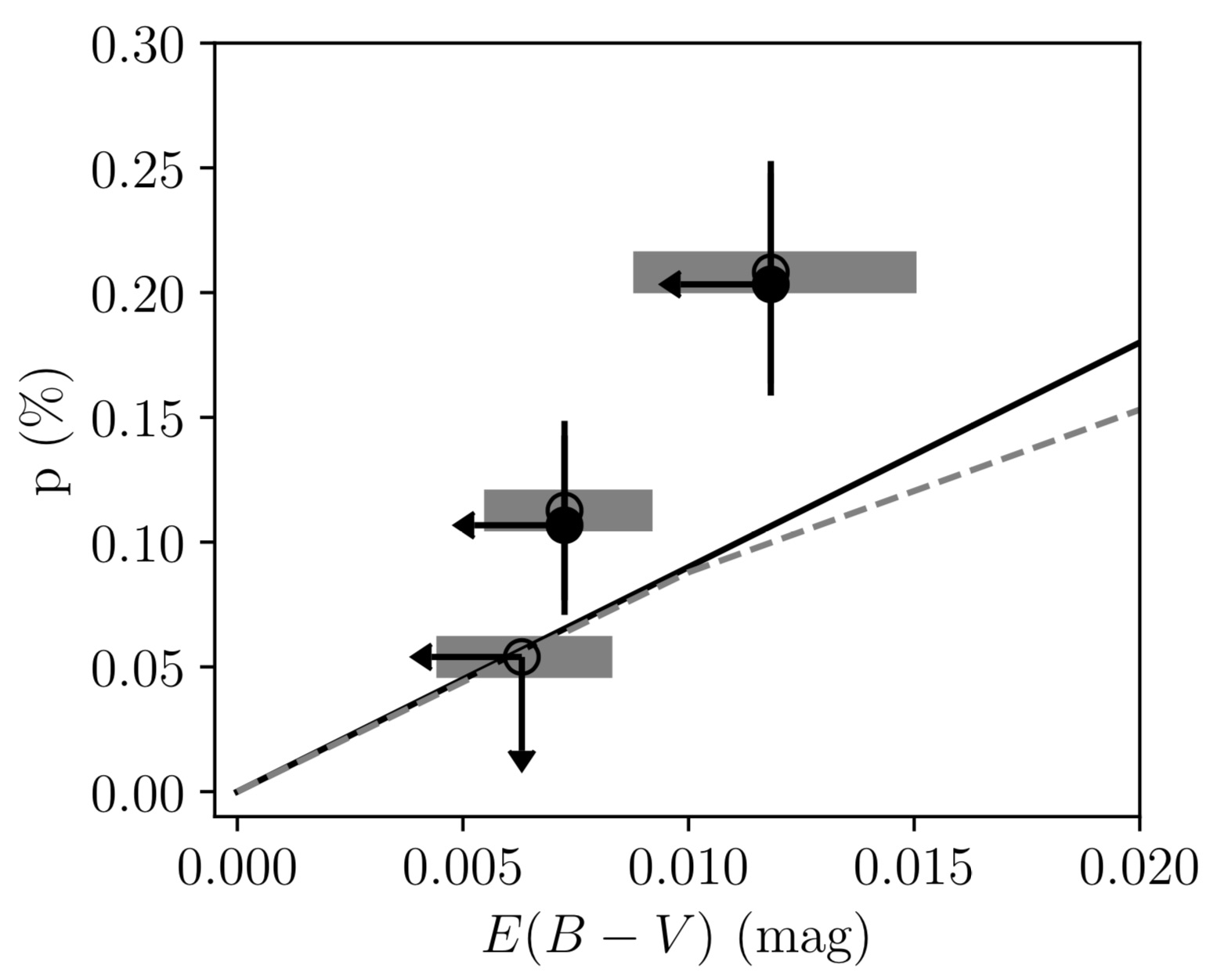Very little information exists concerning the properties of the interstellar medium (ISM)-induced starlight polarization at high Galactic latitudes. Future optopolarimetric surveys promise to fill this gap. We conduct a small-scale pathfinding survey designed to identify the average polarization properties of the diffuse ISM locally, at regions with the lowest dust content. We perform deep optopolarimetric surveys within three 15’× 15′ regions located at b > 48° using the RoboPol polarimeter. The observed samples of stars are photometrically complete to 16 mag in the R-band. The selected regions exhibit low total reddening compared to the majority of high-latitude sightlines. We measure the level of systematic uncertainty for all observing epochs and find it to be 0.1% in fractional linear polarization, p. The majority of individual stellar measurements have low signal-to-noise ratios. However, our survey strategy enables us to locate the mean fractional linear polarization pmean in each of the three regions. The region with lowest dust content yields pmean = (0.054 ± 0.038)%, not significantly different from zero. We find significant detections for the remaining two regions of: pmean = (0.113 ± 0.036)% and pmean = (0.208 ± 0.044)%. Using a Bayesian approach, we provide upper limits on the intrinsic spread of the small-scale distributions of q and u. At the detected pmean levels, the determination of the systematic uncertainty is critical for the reliability of the measurements. We verify the significance of our detections with statistical tests, accounting for all sources of uncertainty. Using publicly available HI emission data, we identify the velocity components that most likely account for the observed pmean and find their morphologies to be misaligned with the orientation of the mean polarization at a spatial resolution of 10′. We find indications that the standard upper envelope of p with reddening underestimates the maximum p at very low E(B-V) (<=0.01 mag).
Skalidis, R.; Panopoulou, G. V.; Tassis, K.; Pavlidou, V.; Blinov, D.; Komis, I.; Liodakis, I.
2018, Astronomy and Astrophysics, 616, A52
http://adsabs.harvard.edu/abs/2018A%26A…616A..52S
